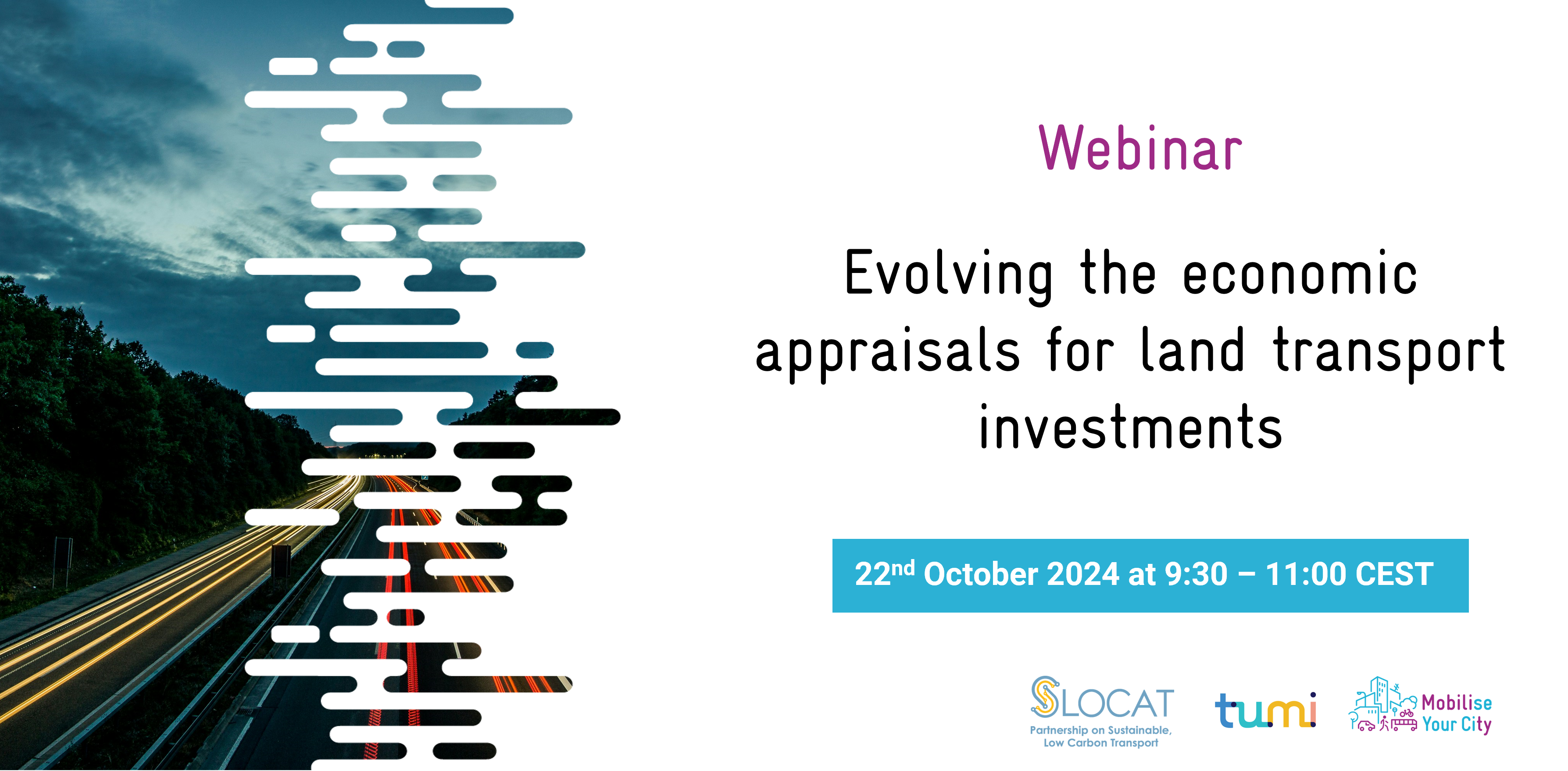
Evolving the economic appraisals for land transport investments
Description
While there has been increasing progress in recent years, the use of standardised, comprehensive sustainability criteria to appraise the economic value of transport investment proposals is yet to become the new normal over conventional methods. A more comprehensive and integrated approach is proposed, one that values more impacts and outcomes, as well as the broad economic, social and environmental synergies emerging across the integrated implementation of public transport, walking and cycling.
Whereas economic appraisals are only one piece in the big puzzle of prevailing issues in transport economics and investments, evolving these appraisals is essential to both redirecting and scaling up investments in sustainable, low-carbon transport solutions. Adequate economic mechanisms and investments are central to a just transition to equitable, healthy, green and resilient transport and mobility systems. But too often current economic mechanisms work against such a transition. Fossil fuel subsidies, tax-free fuel for high-polluting modes, external costs paid by society at large, and “free” parking for all are some examples. Additionally, the current investment levels in sustainable, low-carbon transport by international finance institutions, governments and the private sector fall short of what is required to put the transport sector on a sustainability and decarbonisation pathway. To scale up these investments, improvements are needed across frameworks, project preparation, project financing and implementation.
This training aims to contribute stakeholders better understand issues inherent to applying conventional models for appraising the economic value of land transport investment proposals. It will highlight the financial and economic value of public transport, walking and cycling, and provides guidance and peer-exchange opportunities to evolve conventional economic appraisals for land transport in support of sustainability and decarbonisation goals.
This training is co-organised by SLOCAT and MobiliseYourCity Partnership. The training context is based on the policy paper developed under the SLOCAT and the Transformative Urban Mobility Initiative (TUMI) around transport economics.
Learning objectives
1. Identifying the improvement opportunities in economic appraisals for transport that prevent investments in public transport, walking and cycling at scale
2. Enhancing the understanding of solutions to reverse them.
Speakers
- Milnael Gómez Morales | Sustainable Mobility Expert | MobiliseYourCity
- Alice Yiu | Director of Policy Outreach and Strategic Communications | SLOCAT
- Nikola Medimorec | Director of Data Analysis and Research | SLOCAT
|
Time |
Activity |
Responsible |
|
9:30-9:35 |
Welcome and Workshop Methodology
|
Milnael Gomez, MobiliseYourCity |
|
9:35-9:45 |
Issues with conventional economic appraisals for land transport
|
Alice You, SLOCAT |
|
9:45-9:55 |
Robust economic case for investing in public transport, walking and cycling
|
Nikola Medimorec, SLOCAT |
|
9:55-10:05 |
Recommendations to decision-makers to evolve conventional economic appraisals for land transport
|
Alice You, SLOCAT |
|
10:05-10:20 |
SUMP measurement selection process in a MobiliseYourCity SUMPs
|
Milnael Gomez, MobiliseYourCity |
|
10:20-10:55 |
Building capacity to evolve appraisals - where are we?
|
Alice You, SLOCAT |
|
10:55-11:00 |
Closing |